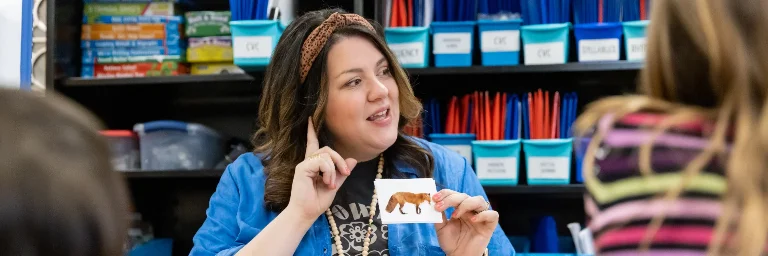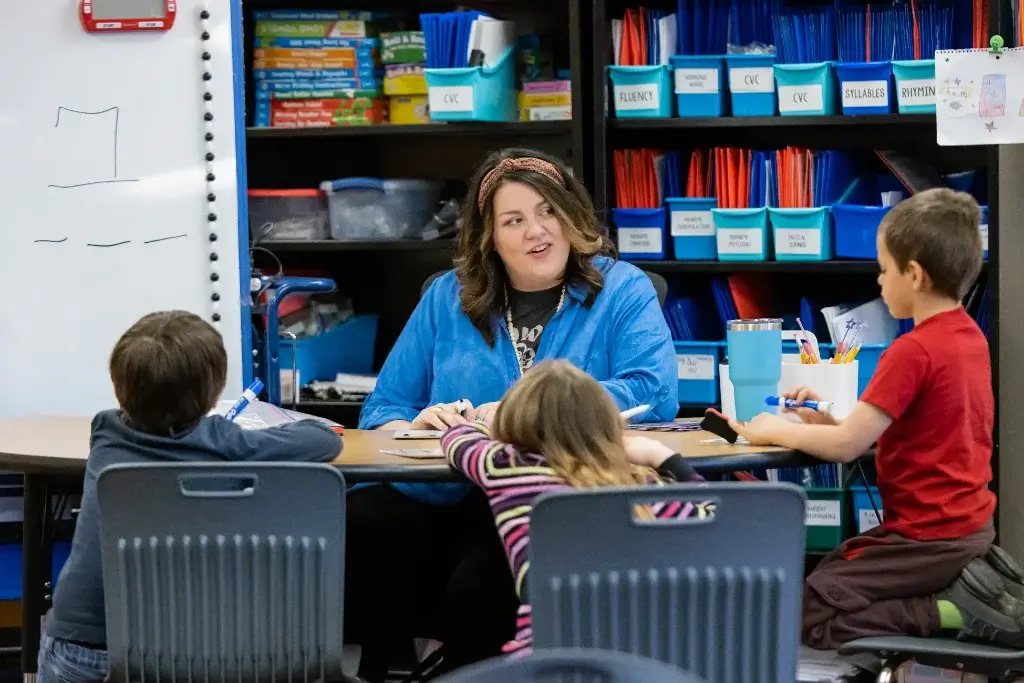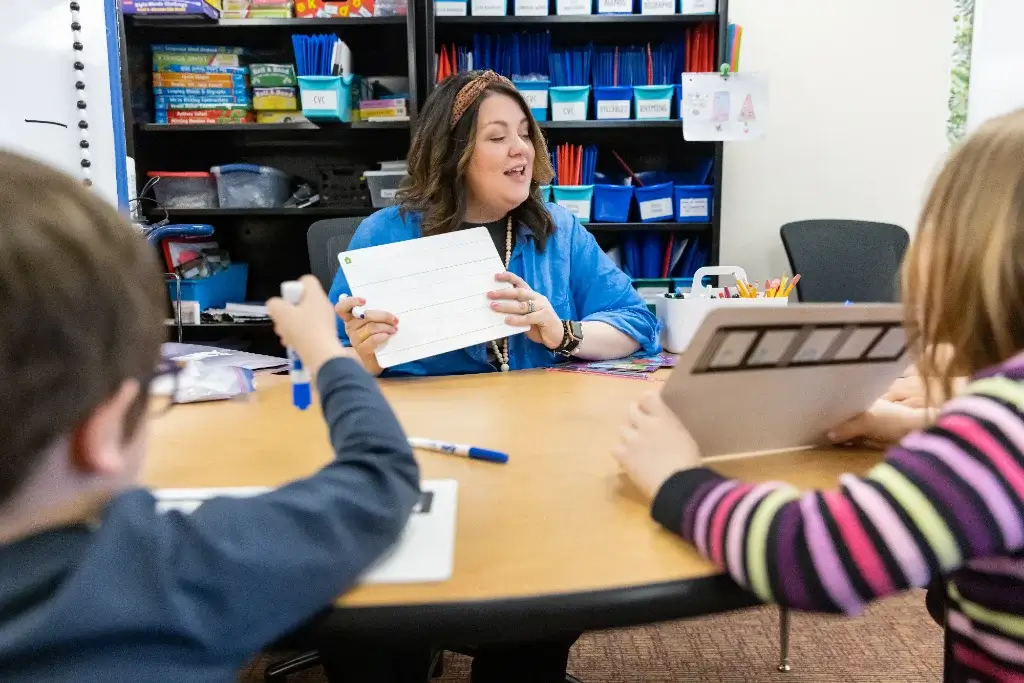
What is Special Education?
Historically, students with learning needs often struggled to have their challenges recognized and adequately supported in the general education system.
Request Information
However, significant strides have been made to rectify this situation, mainly through the Individuals with Disabilities Education Act (IDEA). This legislation aims to ensure that students with learning needs can access and benefit from specialized education services.
To better understand this area of education, we'll explore key questions like "What is special education?" as well as examine the process students undergo to qualify for special education services. So, read on and uncover the importance of special education in fostering inclusive learning environments for all students.
Key Takeaways
- Special education ensures that students with disabilities or learning differences receive personalized support and instruction so they can thrive academically and socially.
- Special education covers a wide range of visible and invisible disabilities, from dyslexia and ADHD to autism and physical impairments.
- Common special educational needs include learning difficulties, speech delays, behavioral challenges, and social-emotional needs, all requiring tailored interventions.
- If you want to make a real difference in education, pursuing a career in special education through UND’s specialized programs is a powerful place to start.
What is Special Education?
Special education is exactly what it sounds like: education designed to meet the unique needs of students who require extra support due to disabilities or learning differences. And while that might sound straightforward, the reality is that it's a deeply personalized approach that ensures every student, no matter their abilities, has access to the education they deserve.
Although some might be under the wrong impression that, in some way, it is about separating students or making them feel different, special education, in fact, is about giving them the right strategies and learning environments so they can thrive in school just like any other child. This is also why special education programs are so varied, ranging from minor classroom accommodations to full-time specialized instruction.
At its core, special education is about equity and making sure every student gets a fair shot at reaching their full potential through education.
Common Disabilities That Are Considered a Part of Special Education
When people think about special education, they often picture students with visible disabilities, but the truth is that special education covers a wide range of conditions, some of which are entirely invisible to the outside world.
Learning disabilities like dyslexia, which makes reading and writing an uphill battle, or dyscalculia, which turns math into a daily struggle, are incredibly common, yet they're not always easy to spot.
Then there are developmental disabilities such as autism spectrum disorder (ASD), which affects communication and social interactions in ways that vary from person to person, and ADHD, which can make focus and organization a real challenge in traditional classrooms.
Physical disabilities, hearing and vision impairments, and even emotional and behavioral disorders also fall under the umbrella of special education.
Why Are Special Education Teachers Important?
If you've ever met a great teacher who sees potential where others see struggle and never gives up on their students, then you already know that special education teachers are so important because they do all that and more.
A special education teacher's impact goes beyond teaching; they advocate, problem-solve, collaborate with parents and therapists, and constantly adjust their methods to ensure that each student receives the education that works for them, which is no small feat.
The reality is that students with disabilities often face obstacles that go beyond academics, and special education teachers play a key role in helping them navigate those challenges while also ensuring they're progressing in their learning. Without these educators, so many students would be left behind, and that's simply not an option in a world that values inclusion and equal opportunity.

Key Principles of IDEA: Ensuring Equal Education Rights for Students with Disabilities
The Individuals with Disabilities Education Act (IDEA) is the backbone of special education in the U.S., and while laws can sometimes feel distant and technical, this one is deeply personal for the millions of students and families it protects because it ensures that kids with disabilities have the same educational rights as everyone else, no exceptions.
The six principles of IDEA are:
- Free Appropriate Public Education (FAPE)
- Appropriate Evaluation
- Individualized Education Program (IEP)
- Least Restrictive Environment (LRE)
- Parent and Student Participation
- Procedural Safeguards
What Are the Most Common Special Educational Needs?
Special educational needs can stem from a variety of conditions, including disabilities, health conditions, or social and emotional factors. Some of the most common SEN include learning difficulties, speech and language delays, behavioral issues, and social and emotional needs.
Students with learning difficulties require tailored instruction methods, such as phonics-based reading programs or visual aids, to help them grasp concepts. Those with speech and language delays may need specialized speech therapy and language support to improve their communication skills.
Behavioral issues, such as challenges with self-regulation or attention, necessitate behavior management programs or the use of assistive technology to help students focus. Social and emotional needs, on the other hand, often require interventions like counseling, social skills training, or smaller, more supportive classroom environments.
In addition, students with sensory impairments (e.g., vision or hearing loss) need assistive devices or modifications to classroom materials, while students with autistic spectrum disorders require individualized learning plans that cater to their unique social and communication needs.

Want to Make an Impact as an Educator?
If you're someone who believes that every student deserves a high-quality education that empowers them to succeed, becoming a special education teacher might just be the most fulfilling career path you could choose.
There's a growing need for dedicated, passionate educators ready to make a difference in the lives of students who need that extra level of support, and if that sounds like you, there's no better time to take the next step.
Enrolling in a special education degree program is the first step toward a career that is really impactful. The University of North Dakota offers a comprehensive Special Education M.S. & M.Ed. program that equips future educators with the skills, strategies, and hands-on experience needed to make a real difference in the classroom.
FAQs
In education, "special" refers to tailored instruction and support designed specifically for students with disabilities or unique learning needs. It means that their education is customized to help them succeed, using individualized teaching methods, accommodations, and resources that go beyond a standard classroom approach.
Being a special education teacher is absolutely challenging. The job can be emotionally demanding, but the impact these teachers have on their students makes all the hard work worth it.
To become a special education teacher, you'll need coursework that covers educational psychology, behavior management, instructional strategies, and disability law, among other key areas that will provide you with the proper special education teacher skills.
According to the latest data by the U.S. Bureau of Labor Statistics, the median annual wage for special education teachers was $64,270 in May 2024.